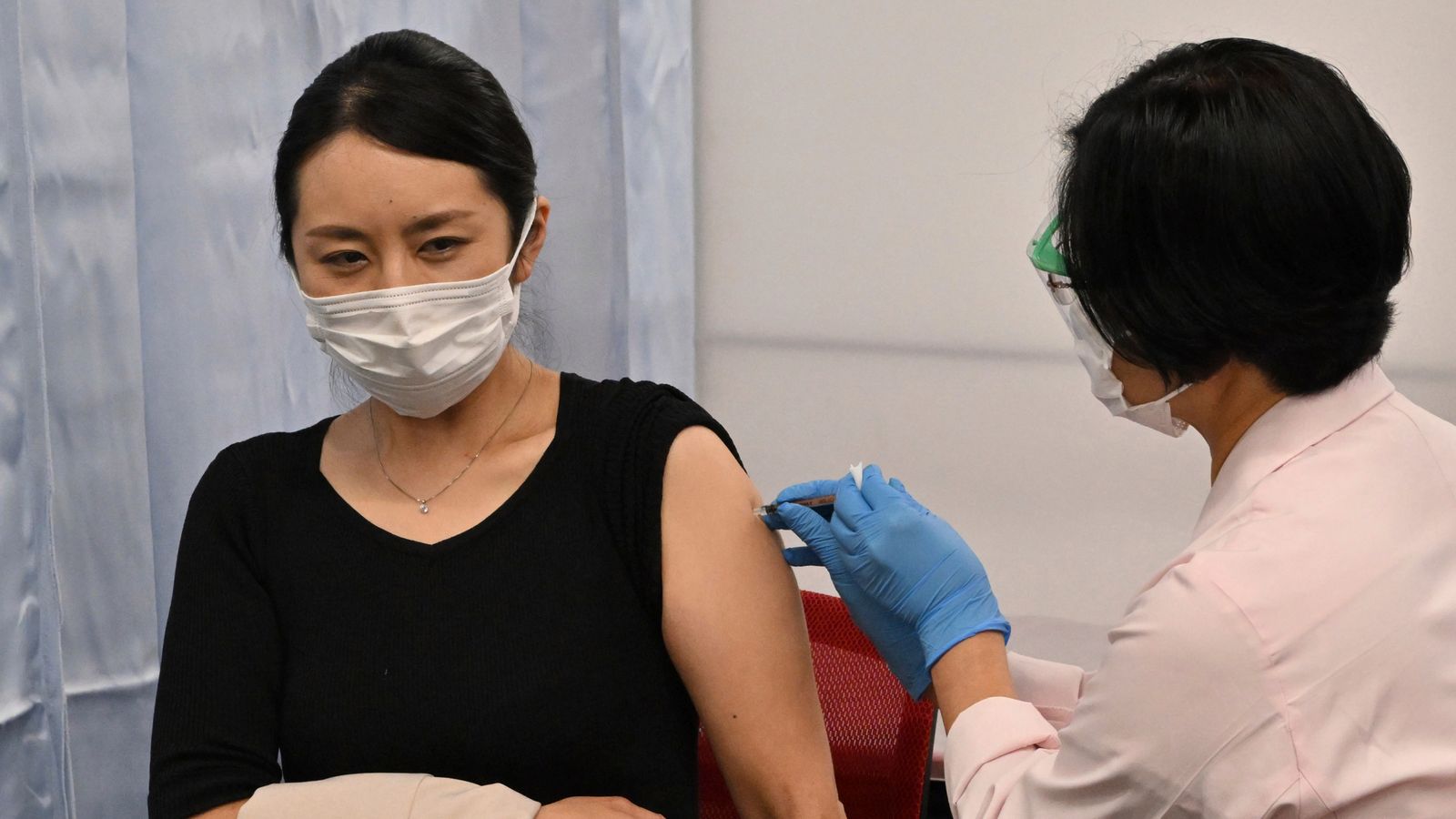A mutation of an Omicron subvariant of COVID could dodge the immune systems of the vaccinated and unvaccinated and drive reinfections, a study has suggested.
Currently, BA.5 is the dominant global Omicron variant and has shown a “substantial” ability to evade immune protection compared with previous subvariants, according to a report published on Wednesday in the New England Journal of Medicine.
However, BA.4.6, a mutation of BA.4, has recently increased in prevalence in certain regions where BA.5 is dominant, including in the US, the report outlines.
The variant has been detected in more than 12% of new COVID-19 cases in the US, according to the Centers for Disease Control and Prevention.
Whether it can escape antibodies gained through prior COVID infection or vaccination is still unknown, however a small study outlined in the report suggests that it might.
Data from the blood samples of 35 people who had either been recently infected by COVID, or vaccinated and boosted with the original Moderna vaccine, indicated that antibodies against BA.4.6 were about twofold lower than against BA.5.
“This suggests that Omicron continues to evolve and continues to evolve in a way that becomes more transmissible and more effective at escaping vaccines and immune responses”, said study author Dr Dan Barouch, director of the Center for Virology and Vaccine Research at the Beth Israel Deaconess Medical Center in Boston.
The ‘green code’ app: How China’s Zero COVID policy is turning cities, parks, restaurants and shops into digitised fortresses
NHS England setting up ‘war rooms’ to prepare for ‘toughest winter on record’
Cancer vaccine could become available by 2030, scientists behind COVID jab say
“The results are actually a harbinger to new variants that might be even more worrisome”, he added.
The study participants had been infected with either Omicron subvariants BA.1 or BA.2.
It remains to be determined whether BA.4.6 can evade immune protection gained from infection with BA.5 or vaccine boosters containing immunogens that fight BA.5.
‘Viral evolution on steroids’
Experts are also keeping their eye on other Omicron subvariants that are circulating.
BQ.1 accounts for more than 5% of new cases in the US, up from 3% the week before and 1-2% the week before that, according to the CDC.
Read more:
COVID cases are rising again – do we need to worry?
Pandemic caused changes to global mortality ‘not seen in 70 years’
COVID cases in UK rocket by almost a third in a week
A similar picture can be seen with BA.7, which accounts for more than 5% of new cases in the US, up from 4% the previous week and 3% the week before that.
“It’s astonishing to see how the virus keeps mutating at such a rapid rate,” said Dr Barouch, adding: “This is essentially viral evolution on steroids.”
The report concluded that the virus continues to evolve.
“The virus is very rapidly diversifying,” said Bill Hanage, an associate professor of epidemiology at the Harvard T.H. Chan School of Public Health.







